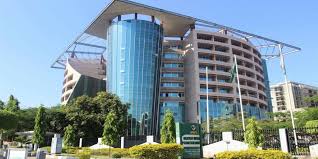The Nigerian Communications Commission (NCC) has unveiled a new cybersecurity framework designed to strengthen the digital safety and resilience of the country’s communication ecosystem. The initiative, which is backed by the World Bank Group, aims to address growing cyber threats and build a secure online environment for businesses, institutions, and individuals.
The announcement was made during a regulatory stakeholders’ meeting on cybersecurity framework development held in Lagos yesterday. Speaking at the event, NCC’s Executive Commissioner for Technical Services, Abraham Oshadami, emphasized the urgency of the move. He noted that Nigeria’s increasing reliance on digital platforms, combined with a surge in data usage and the evolving nature of cyber threats, makes it critical to take decisive and strategic actions to protect the country’s digital space.
According to Oshadami, “The communications sector is the backbone of Nigeria’s economy. As it continues to drive digital transformation, it is increasingly becoming a target for cybercriminals. We must proactively close security gaps before they are exploited. This framework will help guide best practices across the industry.”
He added that the NCC is committed to an open and collaborative approach to cybersecurity. “We are creating a channel for continuous engagement with stakeholders—from framework development to full implementation. Everyone must be involved. We are committed to building a trusted and secure communications environment in Nigeria,” Oshadami said.
Also speaking at the meeting, the Executive Vice Chairman of the NCC, Dr. Aminu Maida, outlined the core objectives of the new cybersecurity framework. He stated that it is designed to promote a unified and resilient cybersecurity posture across Nigeria’s communications industry.
Dr. Maida explained that the framework will provide protection for telecommunications infrastructure against cyber threats, safeguard consumer data, and enhance public confidence in digital services. He added that the project aligns with Nigeria’s national cybersecurity strategy and is aimed at raising the overall security awareness and capacity of stakeholders in the sector.
Some of the specific objectives include:
Strengthening defenses against cyber-attacks targeting telecoms infrastructure.
Protecting the privacy and data of consumers using digital services.
Ensuring all actions conform to Nigeria’s broader cyber strategic goals.
Building cybersecurity competence across the sector through training and collaboration.
Identifying and mitigating cyber risks through proactive engagement and technical innovation.
The NCC noted that the rise in online activities—from banking and e-commerce to health and education services—has led to a growing number of cyber incidents. These include identity theft, ransomware attacks, phishing scams, and data breaches, which could cripple key economic and communication systems if not properly addressed.
Experts at the event applauded the NCC’s initiative, stressing the need for all industry players—telecoms operators, internet service providers, fintech companies, and government agencies—to support the framework by implementing the recommended practices and standards.
The World Bank Group’s involvement in the framework development signals a strong endorsement of the initiative’s global relevance and importance. As part of its support, the World Bank is expected to provide technical assistance, training, and funding for capacity-building programs aimed at strengthening cybersecurity preparedness in Nigeria.
In the coming months, the NCC plans to engage more industry stakeholders and hold regional forums to fine-tune the framework before full deployment. The commission reiterated that its doors remain open for recommendations, collaborations, and technical contributions that would improve the resilience of Nigeria’s digital infrastructure.
Cybersecurity experts and analysts say the framework, if fully implemented, could make Nigeria a model for digital safety in Africa, offering better protection for users and reducing the economic and reputational damage associated with cybercrime.
As Nigeria continues to digitalize its economy, strong cybersecurity frameworks like this are seen as critical to fostering trust and encouraging more investments in digital infrastructure and innovation.
